Polysaccharides isolated from Açaí fruit induce innate immune responses
- PMID: 21386979
- PMCID: PMC3046208
- DOI: 10.1371/journal.pone.0017301
Polysaccharides isolated from Açaí fruit induce innate immune responses
Abstract
The Açaí (Acai) fruit is a popular nutritional supplement that purportedly enhances immune system function. These anecdotal claims are supported by limited studies describing immune responses to the Acai polyphenol fraction. Previously, we characterized γδ T cell responses to both polyphenol and polysaccharide fractions from several plant-derived nutritional supplements. Similar polyphenol and polysaccharide fractions are found in Acai fruit. Thus, we hypothesized that one or both of these fractions could activate γδ T cells. Contrary to previous reports, we did not identify agonist activity in the polyphenol fraction; however, the Acai polysaccharide fraction induced robust γδ T cell stimulatory activity in human, mouse, and bovine PBMC cultures. To characterize the immune response to Acai polysaccharides, we fractionated the crude polysaccharide preparation and tested these fractions for activity in human PBMC cultures. The largest Acai polysaccharides were the most active in vitro as indicated by activation of myeloid and γδ T cells. When delivered in vivo, Acai polysaccharide induced myeloid cell recruitment and IL-12 production. These results define innate immune responses induced by the polysaccharide component of Acai and have implications for the treatment of asthma and infectious disease.
Conflict of interest statement
Figures

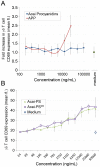
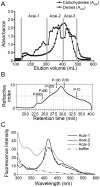
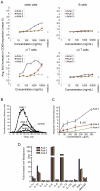

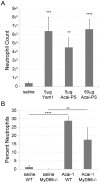
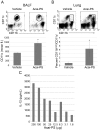
References
-
- Holderness J, Jackiw L, Kimmel E, Kerns H, Radke M, et al. Select plant tannins induce IL-2Ralpha up-regulation and augment cell division in gammadelta T cells. J Immunol. 2007;179:6468–6478. - PubMed
-
- Okuda T. Systematics and health effects of chemically distinct tannins in medicinal plants. Phytochemistry. 2005;66:2012–2031. - PubMed
-
- Kuramochi-Motegi A, Kuramochi H, Kobayashi F, Ekimoto H, Takahashi K, et al. Woodfruticosin (woodfordin C), a new inhibitor of DNA topoisomerase II. Experimental antitumor activity. Biochem Pharmacol. 1992;44:1961–1965. - PubMed
Publication types
MeSH terms
Substances
Grants and funding
LinkOut - more resources
Full Text Sources

